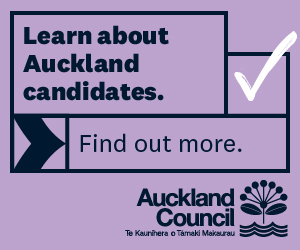
Auckland Council

Housing and planning
Local councils are responsible for land use planning under the Resource Management Act, which affects where and how new houses are constructed, as well as the design of cities and towns. In some areas, councils also provide housing to those who need it most.

Housing and planning
Local councils are responsible for land use planning under the Resource Management Act, which affects where and how new houses are constructed, as well as the design of cities and towns. In some areas, councils also provide housing to those who need it most.
Identify key areas for high density development near public transport and business hubs.
Establish a requirement for green spaces to be included in the development of suburbs and higher density communities.
Reduce special character areas to allow more development close to the city center.
Preservation and protection of existing urban parks and greenspaces. They must not be sold.
Support continued housing intensification where appropriate. There must already be supporting infrastructure capacity and transport choices.
Protect free local suburban town centre parking where practical.
Renters and homeowners get every single possible rebate, reduction, refundable, from council and supporters. In as quick as possible way.
Implement immediately weathertightness, housing zones improvements, and expansions and building consents easily, quickly, efficiently.
Support local land supply and local zoning applications for locals and adjoining neighbourhoods as expansion and growth increase and develop.
Introduce 'inclusionary zoning' to incentivise housing affordability subject to appropriate targeting.
Ensure effective resourcing/templating of building consent process to improve turnaround time, reduce bottlenecks.
Review with urgency government imposed intensification demands and the adequacy of the 'qualifying matters' provisions.
Introduce 'inclusionary zoning' to incentivise housing affordability.
Ensure effective resourcing of building consent process to improve turnaround time.
Review government imposed intensification demands and the adequacy of the 'qualifying matters' provisions.
Commit to zero extension of the urban footprint in the green field areas.
Encourage intensification of existing suburban areas and conversion of commercial to residential within 1km of existing transport hubs.
Commit to prioritising investment in maintenance and upgrades to infrastructure that serves the areas we intensify.
Simplify the Resource Management Act and the flow on regulatory obligations, to make building or renovating a home, more affordable.
Stop selling off council owned land and properties and begin to utilise that never to be replaced asset, and build affordable homes for the needy.
Consider introducing a 1% of CV levy on empty homes, to create more rental or home ownership opportunities. Auckland has about 40,000 empty homes.
Identify key areas for high density development near public transport and business hubs.
Establish a requirement for green spaces to be included in the development of suburbs and higher density communities.
Reduce special character areas to allow more development close to the city center.
Preservation and protection of existing urban parks and greenspaces. They must not be sold.
Support continued housing intensification where appropriate. There must already be supporting infrastructure capacity and transport choices.
Protect free local suburban town centre parking where practical.
Renters and homeowners get every single possible rebate, reduction, refundable, from council and supporters. In as quick as possible way.
Implement immediately weathertightness, housing zones improvements, and expansions and building consents easily, quickly, efficiently.
Support local land supply and local zoning applications for locals and adjoining neighbourhoods as expansion and growth increase and develop.
Introduce 'inclusionary zoning' to incentivise housing affordability subject to appropriate targeting.
Ensure effective resourcing/templating of building consent process to improve turnaround time, reduce bottlenecks.
Review with urgency government imposed intensification demands and the adequacy of the 'qualifying matters' provisions.
Introduce 'inclusionary zoning' to incentivise housing affordability.
Ensure effective resourcing of building consent process to improve turnaround time.
Review government imposed intensification demands and the adequacy of the 'qualifying matters' provisions.
Commit to zero extension of the urban footprint in the green field areas.
Encourage intensification of existing suburban areas and conversion of commercial to residential within 1km of existing transport hubs.
Commit to prioritising investment in maintenance and upgrades to infrastructure that serves the areas we intensify.
Simplify the Resource Management Act and the flow on regulatory obligations, to make building or renovating a home, more affordable.
Stop selling off council owned land and properties and begin to utilise that never to be replaced asset, and build affordable homes for the needy.
Consider introducing a 1% of CV levy on empty homes, to create more rental or home ownership opportunities. Auckland has about 40,000 empty homes.
Mayor
Compare the mayoral candidates in your area
Local council
Compare the candidates for your city or district council
Regional council
Compare the candidates for your regional council
Local board
Compare the candidates for your local or community board










